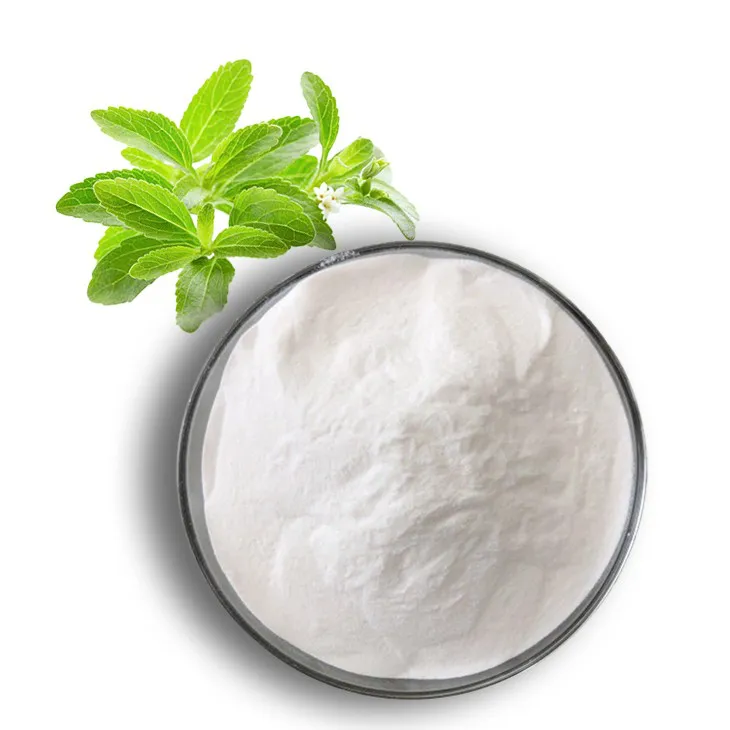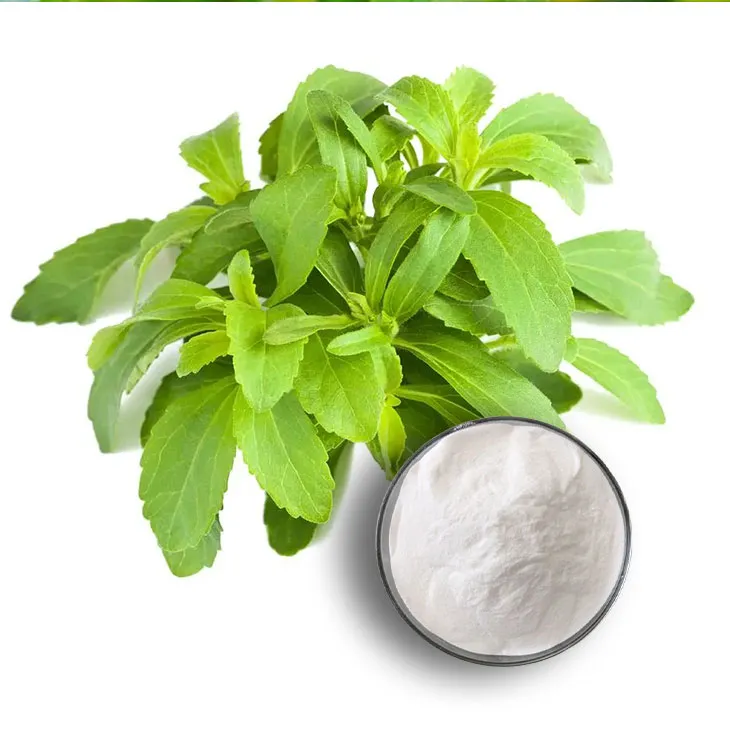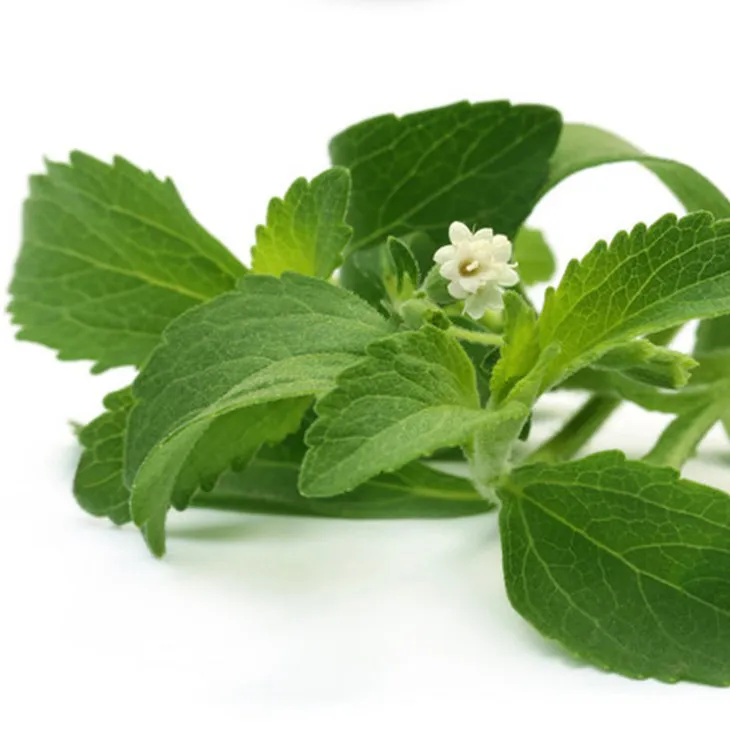- 0086-571-85302990
- sales@greenskybio.com
Which stevia extract should you use?
2024-12-11

Introduction
Stevia Extract has emerged as a popular choice in the world of sweeteners, especially as a natural alternative to artificial sweeteners. With the increasing demand for healthier and more natural food options, understanding the different types of Stevia Extract is crucial. This article will explore the various factors to consider when choosing the right Stevia Extract for different purposes.

The Importance of Purity
The purity of stevia extract is a significant factor to consider. High - purity stevia extracts play a vital role, especially in products where a precise and consistent level of sweetness is required.
High - percentage steviol glycosides
Stevia extracts with a high percentage of specific steviol glycosides are often preferred in such cases. These glycosides are the components responsible for the sweet taste of stevia. For example, Rebaudioside A is one of the most important steviol glycosides. It is known for its intense sweetness and relatively pure taste profile. When used in products like diet sodas or low - calorie desserts, a high - purity stevia extract rich in Rebaudioside A can provide a consistent level of sweetness without the off - flavors that might be present in less pure extracts.
Quality control in purity
Manufacturers need to have strict quality control measures in place to ensure the purity of stevia extracts. This involves careful extraction processes and purification steps. During the extraction, it is essential to isolate the steviol glycosides effectively while minimizing the presence of other plant compounds that could affect the taste or quality of the extract. For instance, some less - refined extraction methods might leave behind traces of chlorophyll or other plant pigments, which can give the stevia extract a greenish tint and a slightly grassy taste. By using advanced purification techniques, manufacturers can produce stevia extracts with a high level of purity, suitable for a wide range of applications.

Taste Quality Differences
Taste is another crucial aspect when choosing stevia extract. Different stevia extracts can have varying taste qualities, which can significantly impact the overall acceptability of the product in which they are used.
Herbal and earthy undertones
Some stevia extracts may have a more herbal or earthy undertone. This can be due to the presence of other natural compounds in the extract, apart from the steviol glycosides. For example, if the extraction process is not highly refined, there might be remnants of the stevia plant's natural oils and other substances. These can contribute to a more complex, but sometimes less desirable, taste. In products like herbal teas or certain natural - flavored confections, a slightly herbal - tasting stevia extract might be acceptable or even desirable as it can blend well with the overall flavor profile. However, in more mainstream products like regular - flavored yogurts or white - table - sugar replacements, this herbal undertone might be off - putting to consumers.
Clean and straightforward sweet taste
On the other hand, more refined stevia extracts offer a cleaner and more straightforward sweet taste. These extracts are typically processed to remove as many of the non - sweet - tasting components as possible. They are often used in products where a pure sweetening effect is desired, such as in clear fruit juices or instant coffee sweeteners. The development of these refined extracts has been a significant step in making stevia more widely acceptable as a sweetener, as they mimic the taste of traditional sugar more closely in terms of simplicity and lack of extraneous flavors.

Intended Use and Compatibility
The intended use of the stevia extract is a key consideration. Different applications require stevia extracts with specific properties, especially in terms of solubility and stability at different temperatures.
Heat - sensitive products
For use in heat - sensitive products like certain beverages or for cold - processed foods, the solubility and stability of the stevia extract at different temperatures need to be taken into account. In hot - brewed coffee, for example, if the stevia extract is not soluble enough, it can leave a gritty or powdery residue at the bottom of the cup. Similarly, in cold - processed smoothies, if the stevia extract does not disperse evenly, it can result in areas of the drink being overly sweet while others are not sweet enough. Some stevia extracts are formulated to have better solubility in both hot and cold liquids, making them more suitable for a wide range of beverage applications.
Food manufacturing
In food manufacturing, stevia extracts need to be compatible with other ingredients. For example, in baking, the stevia extract should not interact negatively with the leavening agents or other components. If a stevia extract has a high water - holding capacity, it could potentially affect the texture of the baked goods. In the production of confectionery items like chocolates or gummies, the stevia extract should be able to blend well with the fats and other additives. Manufacturers need to test different stevia extracts to find the one that best suits their specific product formulation and production processes.

Consumer and Manufacturer Perspectives
Both consumers and manufacturers have different considerations when it comes to choosing stevia extract.
Health - conscious consumers
Health - conscious consumers are often attracted to stevia extract as a natural sweetener option. They may be looking for a sweetener for their daily coffee or tea that is low - calorie and has a natural origin. For these consumers, the taste quality is important, but they are also likely to be interested in the purity of the extract. They may prefer high - purity stevia extracts that are free from artificial additives or contaminants. Additionally, they might be concerned about the extraction process, preferring those that are more environmentally friendly or sustainable.
Food manufacturers
Food manufacturers aiming to create a new product line have a more complex set of considerations. They need to balance cost, taste, and functionality. While a high - quality stevia extract might offer the best taste and performance, it could also be more expensive. Manufacturers need to find a stevia extract that meets their quality requirements while also fitting within their budget. They also need to consider the regulatory requirements for using stevia extract in different regions. For example, some countries may have specific limits on the amount of stevia that can be used in food products or may require certain labeling for stevia - containing products.
Conclusion
In conclusion, choosing the right stevia extract is not a one - size - fits - all decision. Whether you are a consumer looking for a natural sweetener for your daily use or a manufacturer developing new products, understanding the nuances of different stevia extracts in terms of purity, taste quality, and intended use is essential. By carefully considering these factors, you can ensure that the stevia extract you choose meets your specific needs and provides a satisfactory sweetening solution.
FAQ:
What is the importance of stevia extract purity?
High - purity stevia extracts, especially those with a high percentage of specific steviol glycosides, are crucial when a precise and consistent level of sweetness is needed. For example, in the manufacturing of some products where the exact amount of sweetness has to be maintained for quality control and consumer satisfaction, high - purity stevia extract is preferred.
How does the taste quality of stevia extract differ?
Taste quality among different stevia extracts can vary significantly. Some stevia extracts may have a more herbal or earthy undertone. However, the more refined stevia extracts typically offer a cleaner and more straightforward sweet taste. This difference in taste can influence the choice of stevia extract depending on the final product's intended flavor profile.
Why is solubility and stability important for stevia extract?
Solubility and stability are important considerations, especially when stevia extract is used in heat - sensitive products such as certain beverages or cold - processed foods. If the stevia extract is not soluble or stable at the relevant temperatures, it can lead to issues like sedimentation or a change in taste, which can negatively affect the product quality.
How can a health - conscious consumer choose the right stevia extract?
A health - conscious consumer should consider factors like purity and taste. If they want a more natural and pure sweetener option for their daily coffee, for example, they might look for high - purity stevia extract. Also, they should consider the taste they prefer. If they don't like the herbal undertone, they can choose a more refined stevia extract with a cleaner sweet taste.
What should a food manufacturer consider when choosing stevia extract?
A food manufacturer needs to consider multiple aspects. They must think about the purity for consistent sweetness in their products. Taste is also important as it affects the overall flavor of the food item. Additionally, solubility and stability are crucial, especially if the product involves different processing temperatures or methods, such as in heat - sensitive or cold - processed foods.
Related literature
- Stevia Extract: Properties and Applications in the Food Industry"
- "The Science Behind Stevia Extract Purity and Taste"
- "Evaluating the Solubility and Stability of Stevia Extract in Different Food Matrices"
- ▶ Hesperidin
- ▶ citrus bioflavonoids
- ▶ plant extract
- ▶ lycopene
- ▶ Diosmin
- ▶ Grape seed extract
- ▶ Sea buckthorn Juice Powder
- ▶ Beetroot powder
- ▶ Hops Extract
- ▶ Artichoke Extract
- ▶ Reishi mushroom extract
- ▶ Astaxanthin
- ▶ Green Tea Extract
- ▶ Curcumin Extract
- ▶ Horse Chestnut Extract
- ▶ Other Problems
- ▶ Boswellia Serrata Extract
- ▶ Resveratrol Extract
- ▶ Marigold Extract
- ▶ Grape Leaf Extract
- ▶ blog3
- ▶ blog4
- ▶ blog5
-
Pure 85% Tomentil Extract.
2024-12-11
-
Grapefruit Seed Extract Powder
2024-12-11
-
Green coffee bean Extract
2024-12-11
-
White mustard seed extract
2024-12-11
-
Uridine-5'-monophosphate Disodium salt
2024-12-11
-
Alfalfa Meal
2024-12-11
-
Andrographis Paniculata Extract Powder
2024-12-11
-
Shikonin
2024-12-11
-
Sea buckthorn Juice Powder
2024-12-11
-
Soy Extract
2024-12-11
-
Feverfew Extract
2024-12-11





















